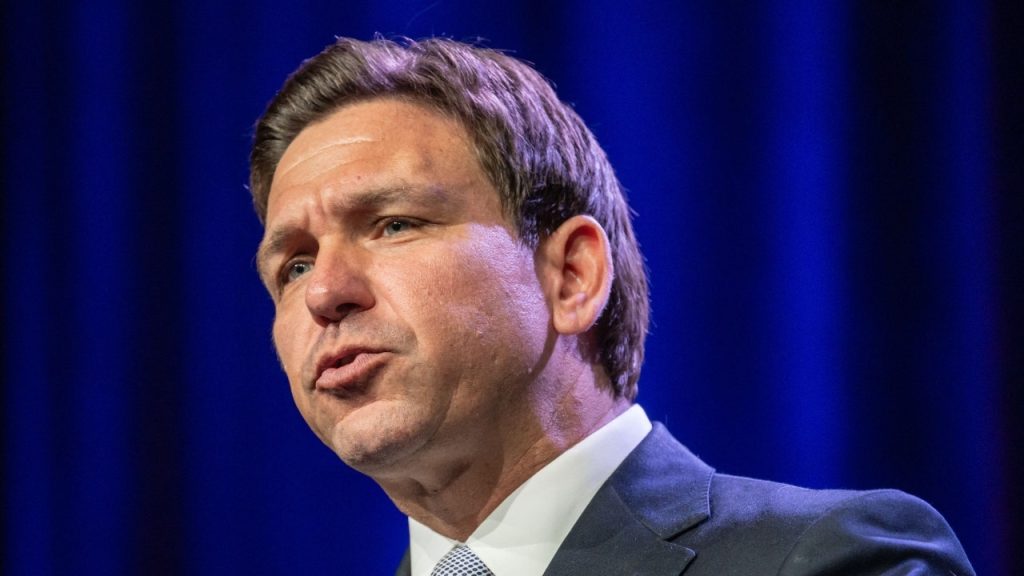In a bold move, Florida Governor Ron DeSantis has expressed a desire to repeal the state’s existing red flag law, citing concerns about its constitutionality and violation of Second Amendment rights. The red flag law, enacted in response to the tragic shootings in Parkland, allows authorities to confiscate firearms from individuals deemed a threat to themselves or others. During his State of the State Address, DeSantis stated that had he been governor at the time the law was signed, he would have opposed its enactment.
| Article Subheadings |
|---|
| 1) Overview of Florida’s Red Flag Law |
| 2) DeSantis’s Reasons for Repeal |
| 3) Historical Context of the Law |
| 4) Public and Political Reactions |
| 5) Current Legislative Outlook |
Overview of Florida’s Red Flag Law
Passed in the wake of the devastating Marjory Stoneman Douglas High School shooting in February 2018, Florida’s red flag law gives law enforcement the authority to obtain court orders for the temporary removal of firearms from individuals assessed as a risk to themselves or others. This law allows law enforcement to represent the state in seeking orders to confiscate weapons, stemming from an evaluation of the individual’s mental stability and threat level. Unlike rules in many other states, Florida’s legislation does not permit family members to petition for weapon confiscation. According to records, law enforcement filed nearly 10,000 petitions under this law between July 2022 and the end of 2024.
DeSantis’s Reasons for Repeal
Governor DeSantis has publicly articulated his intention to repeal the red flag law, contending that such measures fundamentally infringe on Second Amendment rights. He characterized the legislation as a shift in due process, where the burden falls on individuals to prove they are not a threat to themselves or others, rather than placing that burden on the state. “This law undermines property rights and the ability to defend oneself,”
“What you see is that they can take your property without you being proven guilty of anything,”
he stated during his address. His stance reflects a broader conservative critique of red flag laws, which they argue can lead to unjust confiscation of firearms without proper legal processes.
Historical Context of the Law
The introduction of Florida’s red flag law emerged as a direct response to the Parkland shooting, a tragic event that took the lives of 17 individuals and left many others wounded. After this incident, then-Governor Rick Scott enacted the law, which represented a significant policy shift aimed at preventing future gun violence. The measure was established in an effort to bridge the gap between gun rights and public safety, though it has faced criticism since its inception. The law also increased the legal minimum age for gun purchases to 21 years old. As DeSantis seeks to repeal the law, discussions about its effectiveness in mitigating violence and protecting vulnerable populations will likely resonate within the community.
Public and Political Reactions
Reactions to DeSantis’s proposal to repeal the red flag law have been mixed. Proponents of the law argue that it serves as an essential tool in keeping firearms out of the hands of potentially dangerous individuals. Advocates for gun control view DeSantis’s stance as a regression in efforts to safeguard communities. In contrast, gun rights advocates laud his initiative, asserting that it aligns with constitutional protections. The political discourse surrounding this issue reflects a significant divide between various stakeholders, including law enforcement, mental health professionals, gun owners, and legislators. Many public safety advocates have echoed DeSantis’s concerns regarding the law’s implementation, emphasizing the importance of due process in the legal system.
Current Legislative Outlook
As of now, no bills have been formally filed in the Florida legislature aimed at repealing the red flag law. This absence of legislative action makes the future of the law uncertain. DeSantis’s tenure has been marked by various initiatives catering to his political base, which largely favors Second Amendment rights. Political analysts are closely monitoring upcoming sessions to see if any initiatives to repeal or amend the law will gain traction. Should a repeal attempt materialize, it will likely ignite vigorous debate among state lawmakers and constituents, drawing national attention to the contentious issue of gun regulations.
| No. | Key Points |
|---|---|
| 1 | Governor Ron DeSantis aims to repeal Florida’s red flag law due to constitutional concerns. |
| 2 | The law allows confiscation of firearms with law enforcement’s petition to the court. |
| 3 | DeSantis argues that the law violates Second Amendment rights and due process. |
| 4 | The red flag law was enacted after the Parkland shooting, which claimed 17 lives. |
| 5 | As of now, no legislative efforts have been initiated to repeal the law in Florida. |
Summary
Governor Ron DeSantis’s campaign to repeal Florida’s red flag law marks a significant turning point in the state’s approach to gun control and Second Amendment rights. As the discourse surrounding this legislation continues, it will impact not only local law enforcement policies but also the broader national conversation regarding firearm regulation and public safety. As the state grapples with the complexity of balancing individual rights and community safety, the outcome of this legislative push will undoubtedly resonate through the political landscape.
Frequently Asked Questions
Question: What is Florida’s red flag law?
Florida’s red flag law allows law enforcement to petition a court for the temporary removal of firearms from individuals considered a threat to themselves or others.
Question: Why does Governor DeSantis oppose the red flag law?
Governor DeSantis argues that the law infringes upon constitutional rights, stating that it shifts the burden of proof to the individual rather than the state.
Question: What are the implications of repealing the red flag law?
Repealing the red flag law could potentially make it easier for individuals deemed a risk to possess firearms, impacting public safety initiatives aimed at preventing gun violence.


